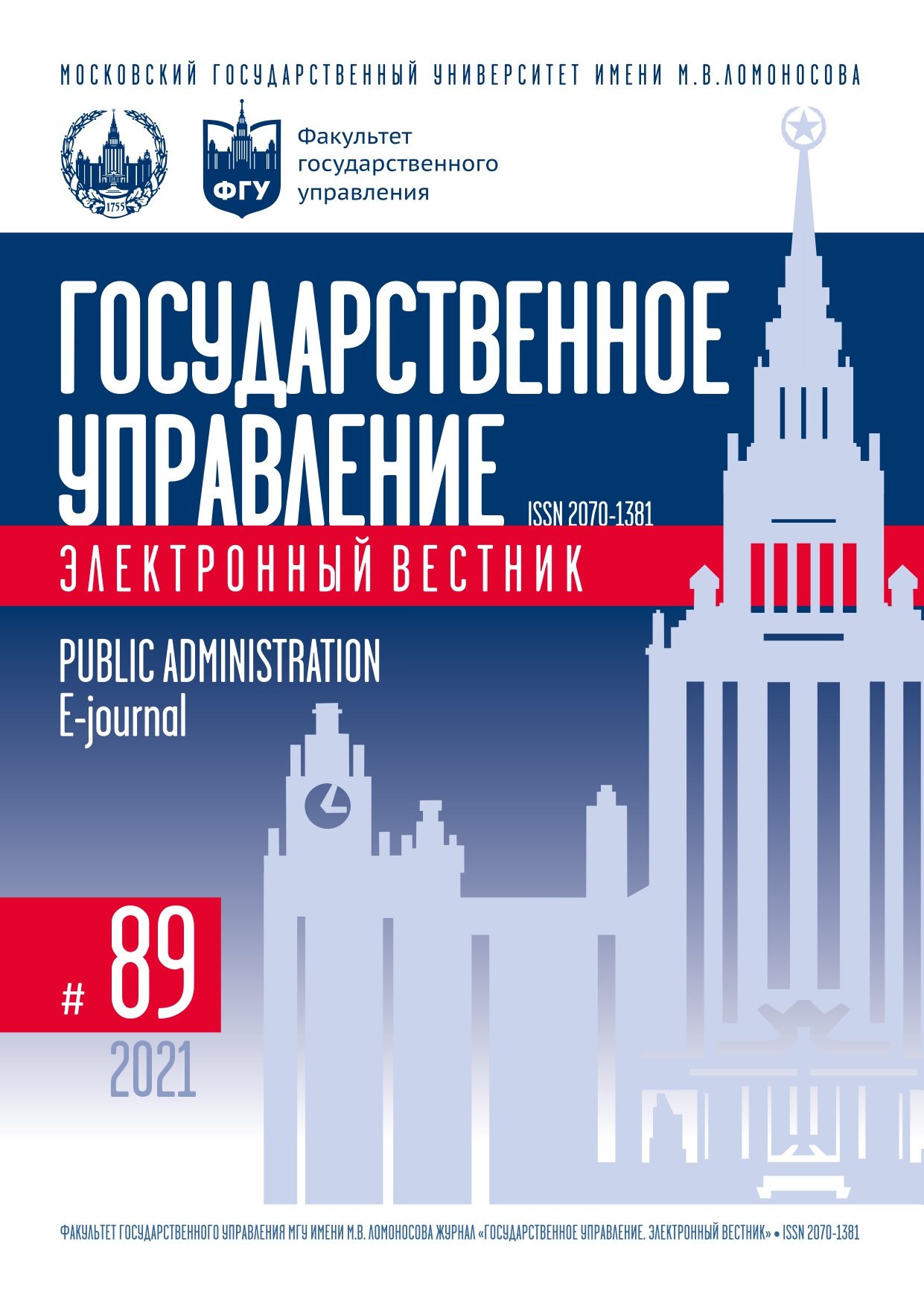Revealing a Degree of Digital Environment Influence on Socio-Political Activity of Young People
Keywords:
Digital environment, social portrait of the youth, socio-political activity, state youth policy, differentiation of youth groupsAbstract
The relevance of this study is determined by the need to identify vectors of the digital environment’s influence on the forms, levels and directions of socio-political activity of young people. The purpose of the presented article is to identify the degree of influence of the digital environment on the socio-political activity of young people, depending on the differentiation of groups according to the main socio-economic characteristics that determine the degree and conventionality of civil and political activity. The main methodological approaches were cognitive and information-institutional; the method of online questionnaire was used (August–November 2021, the sample was 1982 respondents aged 14 to 35 from all federal districts of Russia). The article presents the results of a study on the formation of a social portrait of typical youth representatives in the digital environment in order to identify the degree of its influence on specific youth groups. The positive and negative characteristics of digital information and the quality of its influence on the practice of networking, on the distribution of digital time among specific groups of young people involved in socio-political public practices are determined. Using qualitative and quantitative methods, a comparative analysis of the results was carried out to identify the interdependence of basic age and social characteristics (status, financial situation, etc.) and mental interest in obtaining digital information and its use in order to form an active life position. It was revealed that the most socially active group is at the age of 16–23 years. In general, the following groups of young people were identified by social characteristics that influence the degree of participation in real social practices: “infantile group”, “adult group” and “intermediate group”, which to some extent develops and complements the research of other authors to determine the vector of influence of the digital environment on the social activity of young people. Further development of the study will be aimed at clarifying the causes and factors determining the differentiation of the state of socio-political activity in different age groups of young people. This will make it possible to target the state social policy to focus the interests of youth communities and involve them in positive social practices. Also, it becomes possible to develop principles and tools for proactive state socio-economic policy at the federal and regional levels aimed at preventing destructive and deviant behavior among young people.
References
Блинова О.А., Горбунова Ю.А. Стратегии политической коммуникации молодежи в цифровом пространстве: возможные исходы // Вопросы управления. 2021. № 3. С. 20–34. DOI: 10.22394/2304-3369-2021-3-20-34.
Бродовская Е.В., Домбровская А.Ю., Пырма Р.В., Азаров А.А. Стратегии цифрового поведения российской молодежи в контексте формирования гражданских и профессиональных компетенций // Свободная мысль. 2019. № 4 (1676). С. 109–118.
Бродовская Е.В., Хуанг Т. Цифровое поколение: гражданская мобилизация и политический протест российской молодежи // Мониторинг общественного мнения: Экономические и социальные перемены. 2019. № 5. С. 3–18. DOI: 10.14515/monitoring.2019.5.01.
Добринская Д.Е., Мартыненко Т.С. Перспективы российского информационного общества: уровни цифрового разрыва // Вестник РУДН. Серия: Социология. 2019. Т. 19. № 1. С. 108–120. DOI: 10.22363/2313-2272-2019-19-1-108-120.
Истягина-Елисеева Е.А., Бариеникова Е.Е., Болдырева А.В. Включенность российской студенческой молодежи в интернет-коммуникации как фактор формирования моделей их социально-политической активности // Цифровая социология. 2020. Т. 3. № 3. С. 12–20. DOI: 10.26425/2658-347X-2020-3-3-12-20.
Камалова М.И., Соловьев А.И. Государственная молодежная политика: проблемы и траектории развития в современной России // Государственное управление. Электронный вестник. 2020. № 83. С. 62–83. DOI: 10.24411/2070-1381-2020-10109.
Кружкова О.В., Воробьева И.В., Девятовская И.В. Ценностный портрет молодежи в контексте использования просоциальных и асоциальных маргинальных политических практик // Педагогическое образование в России. 2021. № 2. С. 150–160. DOI: 10.26170/2079-8717_2021_02_18.
Леньков Р.В., Колосова О.А., Ковалева С.В. Социально-психологическая диагностика и прогнозирование протестного поведения молодежи в цифровой среде // Цифровая социология. 2021. Т. 4. № 1. С. 31–41. DOI: 10.26425/2658-347X-2021-4-1-31-41.
Леонтьева Л.С. Совокупная организационная культура как управленческий ресурс регионального развития // Интеллект. Инновации. Инвестиции. 2019. № 1. С. 6–11. DOI: 10.25198/2077-7175-2019-1-6.
Пузанова Ж.В., Ларина Т.И., Тертышникова А.Г. Инфантилизация молодежи: методологический подход к измерению // Вестник РУДН. Серия: Социология. 2021. Т. 21. № 3. С. 444–456. DOI: 10.22363/2313-2272-2021-21-3-444-456.
Селезнева А.В., Зиненко В.Е. Политическая активность российской молодёжи: современные тенденции развития // Вестник Московского государственного областного университета. 2020. № 2. С. 192–208. DOI: 10.18384/2224-0209-2020-2-1012.
Степанов О.В., Пухкалова М.О. Государственная молодежная политика как фактор снижения девиантного поведения молодежи // Теория и практика общественного развития. 2009. № 1. С. 30– 36.
Gere C. Digital Culture. London: Reaktion Books, 2002.
Green L., Brady D. Young People Online // A Companion to New Media Dynamics / ed. by J. Hartley, J. Burgess, A. Bruns. Chichester: Blackwell Publishing, 2013. P. 461–471. DOI: 10.1002/9781118321607.ch33.

